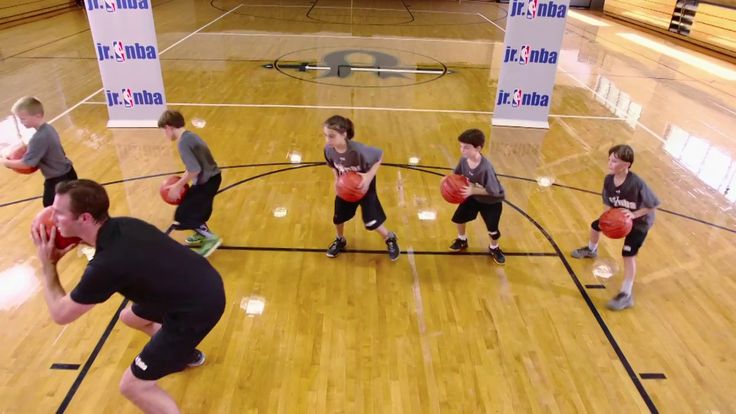Home »
Misc »
How to be a good youth basketball coach
How to be a good youth basketball coach
Coaching Youth Basketball -- Tips, Drills, Plays, Philosophy, Tactics
You'll be teaching habits that will stick with these kids for the rest of their lives. And whether you like it or not, you'll be setting an example and teaching kid's lessons about life (good and bad). Kids are impressionable. They pick up on things.
You have an obligation and responsibility to teach them the right things - in both basketball and life.
When you think about it, teachers would do anything to get the enthusiasm that you get from your players. Kids actually like and want to play basketball.
Your players look up to you. They listen to you. And you have an amazing opportunity to make a POSITIVE impact on their lives!
You have a very important and rewarding job!
In this section of our website, we'll provide you with links to a variety of youth coaching tactics, plays, drills, and tips that will help
you become a better youth basketball coach.![]()
The articles discuss very important concepts to help you succeed. So read through each article, starting with the first one at the top.
If you don't have our free eBook yet, the first thing you should check out is our FREE Basketball Drills ebook. It includes 72 of some of our favorite basketball drills and it includes youth section so you can easily find the drills that apply to you.
We also offer videos with 60+ Youth Basketball Drills and Tips For Coaching Youth Basketball.
When working with young kids and running basketball drills, there are three very important concepts you need to consider:
Picture by
Shane Pope1 - Kids need to be highly active!
Just by using fast paced drills and keeping things moving, your players will have more fun and get in better condition. Your kids should be breathing hard and their hearts should be pumping. It's good for them!
It's good for them!
Avoid standing in lines as much as possible and keep the ball in their hands as much as possible.
2 - Kids want to feel successful!
With very youngs kids, competition doesn't always serve as a motivator. You should always provide activities that help them build their skills and confidence. Strive to focus on the learning process instead of measuring up to those around you.
You'll want to avoid adding pressure and competition until the players have developed their skills, confidence, and become proficient with the basics.
Put them in situations where they can succeed.
3 - Kids want to have lots of fun!
This is an important stage for young players and your actions could determine whether they enjoy sports or not.
It's important to make things fun so they can improve and become confident.
Youth basketball drills don't have to be boring. Almost any drill can be modified to provide high activity, high success, and high enjoyment.
Youth Basketball Offenses
I believe that using a very simple motion offense is the way to go for youth teams because it teaches them how to move and the players will begin to learn how to get open and play the game.
Motion offense also allows you to spend more time teaching fundamentals and skills (which is very important for young players).
The challenging part about motion offenses is that there are SO many options that it's hard for players to know what to do. But you can easily solve that problem by making simple rules and starting with the basics.
For example, you might want to just with just a couple simple options for your motion offense. You could start by teaching the players proper spacing, away screens, and v-cuts. Once they master those skills and get VERY proficient at cutting properly and setting good away screens, then you can start adding more options and building on your foundation.
You can add ball screens, rolling, and so on.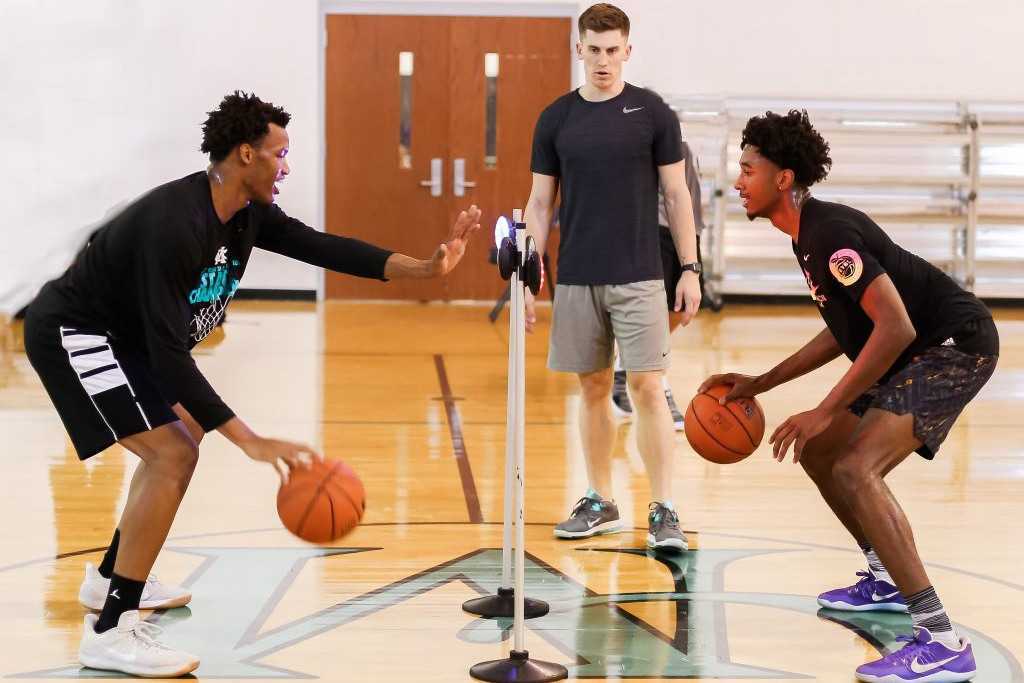 Just don't go too fast! Make sure they have good fundamentals before you start adding stuff.
Just don't go too fast! Make sure they have good fundamentals before you start adding stuff.
You can learn about developing motion offenses by looking at these resources:
Offensive Theory & Introduction to Basketball Offense
Teaching Basketball Motion Offense
5 Out Cutters Offense - Easy to teach and it is a great building block for the motion offense.
You can also try this very simple patterned offense that you can use as a play or your entire offense:
Youth Offense - Michigan
Press Breaker Offense - Breaking the Press in Youth Basketball
3 Critical Player Development Tips For Your Offense
Youth Basketball Plays
When it comes to teaching plays to youth basketball players, it is typically better to teach them concepts on how to play the game of basketball.
- Triple Threat - How to get in triple threat position every time a player catches the ball.
- Footwork - Quick stops & pivoting
- Cutting - Basket cuts & back cuts
- Screens - Off the ball & On-ball
- Eventually, reading screens.

To read more on this topic, please read:
Youth Coaches: Destroy Your Playbook and Do This Instead
Should Youth Coaches AVOID Plays and Patterned Offenses?
Here are some very basic plays:
1-3-1 Cutters
Rolling
Swing Variation
Zone Shallow
Zone Overload
Quick Hitter Vs. 1-3-1 Zone
Best Overall Advice for Youth Basketball Coaches
1) Keep things fun!
Did you know that the #1 reason kids quit sports is because it's not fun anymore?!? It's very important to play plenty of games and keep a positive attitude.
Be positive and make things fun. Even if the kids get cut from the team or decide not play basketball at an older age, they'll still have a positive image of basketball and may continue to play it recreationally when they get older.
If you act like a drill sergeant when coaching a bunch of 10 year olds, the kid will get a negative image of basketball and have negative emotional feelings when thinking of basketball. Kids will also get sick of basketball if they play TOO many games each year. As a result, they will not likely play basketball when they get older. It can even affect their feelings towards fitness in general. If a person dislikes fitness and becomes inactive, they are more likely to be unhealthy!
Kids will also get sick of basketball if they play TOO many games each year. As a result, they will not likely play basketball when they get older. It can even affect their feelings towards fitness in general. If a person dislikes fitness and becomes inactive, they are more likely to be unhealthy!
60+ Youth Basketball Drills and Games
2) Be Positive & Do NOT Correct Every Mistake!
Don't be too critical and stop them to make a correction on every mistake. Let them play and learn themselves. If you stop or correct them on every mistake, you'll get a basketball player with low confidence that is always unsure of what to do, instead of a confident player that reacts to the defense.
Now, if they continue to make the same mistake over and over and over, show the player a better way to do a certain thing. For example, if you see one of your players stand straight up every time they touch the ball and a defender crowds them and causes the offensive player to travel. Say to the player, "Way to hustle, Johnny! Let me show you something that will help you when the defender crowds you. When catching the ball in this position, keep your hips back with your knees bent, and pivot. Be ready to attack. Then if the defender comes to crowd you, it will be easy for you to dribble right by him!" Notice, I did NOT focus on the negative and say "Stop bringing the ball up!"
Say to the player, "Way to hustle, Johnny! Let me show you something that will help you when the defender crowds you. When catching the ball in this position, keep your hips back with your knees bent, and pivot. Be ready to attack. Then if the defender comes to crowd you, it will be easy for you to dribble right by him!" Notice, I did NOT focus on the negative and say "Stop bringing the ball up!"
Don't focus on the negative. Focus on the way to help them. Let's be positive as coaches!
3) Allow your players to be successful!
Sometimes competition is not a motivator for young kids. However ALL kids need to taste success (and hopefully lots of it). Now this doesn't mean winning. It means getting better and succeeding in practice. Allow your players to run drills that they can succeed at and feel good about. Celebrate small accomplishments and successes with your players.
4) Teach life lessons in your practices!
Read this article about teaching life lessons and improving team bonding.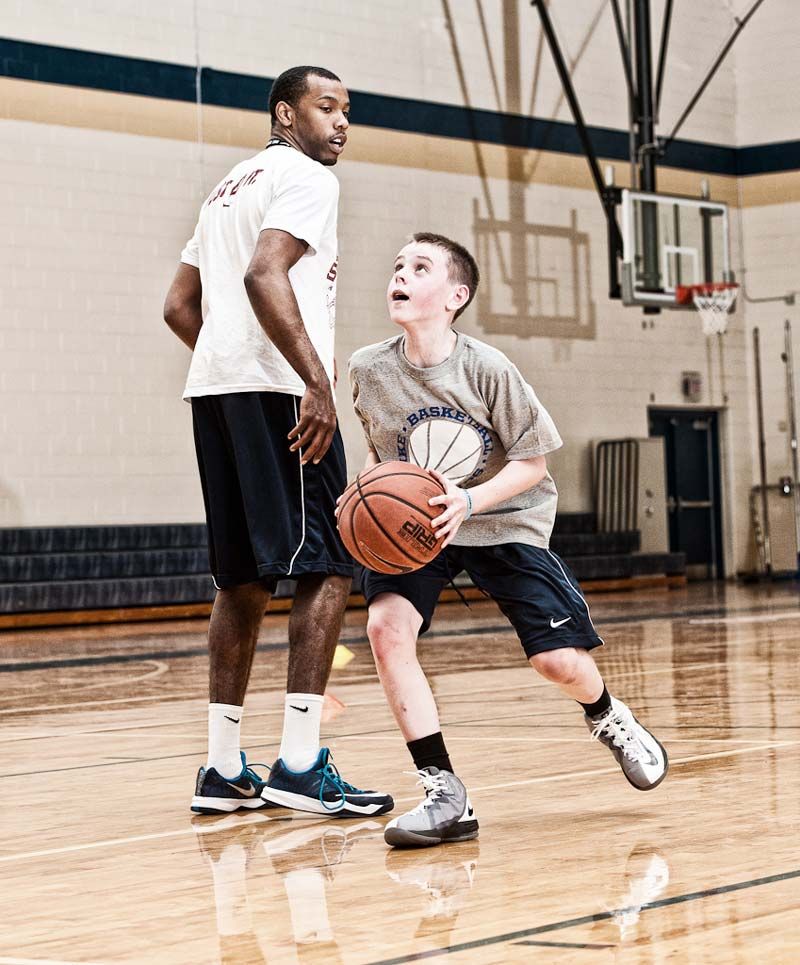
5) Don't worry about winning!
You don't have time to worry about winning. There's only time to do the right thing... If you do things "right", winning will eventually be a by-product of your actions. Be patient. True success takes time to do things right. It doesn't happen overnight.
You must first build a SOLID foundation for these kids to build on. Taking the time to build that foundation will cause you to sacrifice winning some games. Trust us. This is better for your players in the long run.
6) Avoid year-round basketball and play other sports!
There is a reason that NBA GM's don't like their ELITE, PROFESSIONAL basketball players competing in the summer World Championships and Olympics. It's been scientifically proven that playing a sport year-round leads to tired muscles and a tired muscle has a much HIGHER chance of injury. Now, if these PROFESSIONAL athletes with proper nutrition and training are supposed to avoid year-round basketball, don't you think that a DEVELOPING, young athlete (most likely without proper nutrition and training) should be avoiding it as well?!?
If you force your child to play, it can also lead to burnout, injury, and resentment of the sport or fitness
altogether. People are much more driven when they choose to do something they enjoy, rather than being forced to
do it. If you want your child to enjoy basketball, play GAMES with him when they want to, and watch
basketball-related activities with them. 9 times out of 10, kids enjoy sports that their parents enjoy if approached the right way.
People are much more driven when they choose to do something they enjoy, rather than being forced to
do it. If you want your child to enjoy basketball, play GAMES with him when they want to, and watch
basketball-related activities with them. 9 times out of 10, kids enjoy sports that their parents enjoy if approached the right way.
At this age, it is best to improve overall athletic ability which is done by playing multiple sports,
such as gymnastics, baseball, soccer, martial arts, football, track, volleyball, softball, swimming, and so on.
Keep in mind, that you want to have seasons for these sports. Avoid playing 2 or 3 sports at once and multiple practices on the same day. If you want to focus on one sport at age 16 or 17, GREAT. Not at age 10 or 11. And who knows what your child will take an interest in or show talent in at age 10? Most of the time, things change a lot in the next 6 or 7 years!
7) Don't press or play zone defense!
You can read why and get advice here.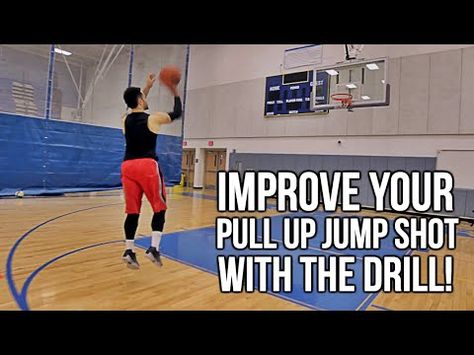
8) Use small basketballs and lower rims!
Using rims that are too high and basketballs that are too big will RUIN your players shooting form. They are NOT strong enough yet.
Do we send 6 year olds to Yankee stadium and start throwing from the big mound? No, we start with tee-ball, then parent pitch, then little league (close bases), and move up.
It's ridiculous to throw 5-10 year olds on a full size court with 10 foot rims and youth basketballs that are way too big! It's no wonder so many kids have horrible shooting form when they get to high school!
9) Teach the right things!
Just keep in mind that if you can teach your young players the following skills, then you should feel good that about what you accomplished and know that you're teaching your player the right things (that they need to be successful)!
Your young players should be able to:
- Dribble with their left and right hands equally well.
- Make lay ups with their left and right hands equally well -- and jump off the proper foot (left foot when shooting with right hand, and vice-versa)
- Perform a jump stop without traveling.
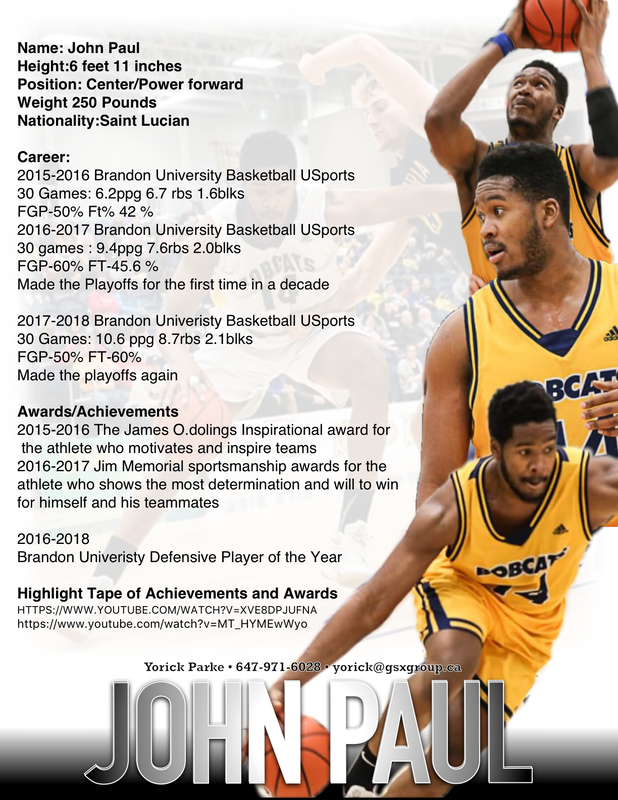
- Pivot on their left and right foot without traveling.
- Perform accurate chest, bounce, and overhead passes.
- Perform a defensive slide (feet wide, good balance, staying between the offensive player and the basket).
- Shoot a basketball with proper form.
These simple skills should be your number priority and your goal should be to help your players master these skills. Once they have truly mastered these skills, you can start building from there.
Breakthrough Bonus: Download this "Youth Basketball" article as a FREE PDF! (Download Now!)
Questions & Answers
If you have any questions about coaching youth basketball, post your questions on our forum.
A group of very experienced and knowledgeable coaches monitor the forum and answer questions.
Recommended Youth Coaching eBooks, Books, and DVDs
Here are the books and DVDs that we recommend to youth coaches:
The Youth Coaching System (By Jim Huber)
60 Fun Youth Basketball Drills
Motion Offense
Basketball Shooting Tips & Drills
M2M Basketball Defense Tips & Drills
Simplified Post Player Development
Coaching Youth Basketball - What Should You Teach?
By Joe Haefner
Home > Coaching > Coaching Youth Basketball > Coaching Youth Basketball - What Should You Teach?
Many youth basketball coaches don't know where to start or what to teach.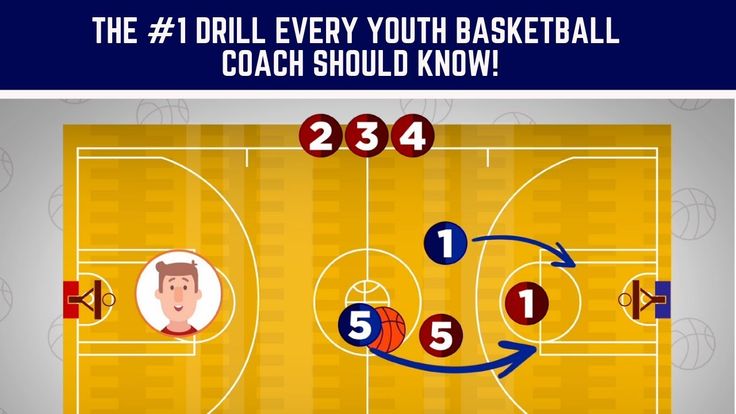 Well, we hope to help you out in this area. Below, we provide some advice on what to teach youth basketball players. We break it down between 3 levels. As you perfect each level, you can advance to the next level to teach more skills & concepts.
Well, we hope to help you out in this area. Below, we provide some advice on what to teach youth basketball players. We break it down between 3 levels. As you perfect each level, you can advance to the next level to teach more skills & concepts.
All beginner players should start with Level 1 no matter the age. We put ages next to the level as a general guideline. Depending on the
age and skill level, you'll progress through the levels at different rates. You may notice that you'll spend 4 years working on Level 1 with 7 to 10 year olds.
At the same time, you may be able to progress to Level 2 after two weeks working with a group of 13 year olds who are playing basketball for the first time.
I would advise to go back and start at Level 1 every year. A lot of high school and college coaches start at Level 1 every year. They just progress through the levels more quickly than a youth team. It's a great way to ingrain
the fundamentals into your players year in and year out.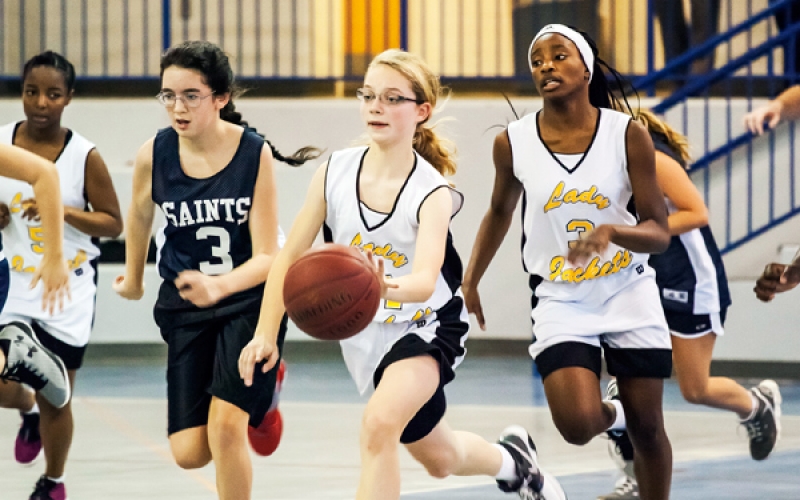
We advise to take a couple of hours and write up a master practice schedule
for the season, so you can progressively teach them the skills mentioned below. It may take a few years to teach all of these skills at one level and THAT'S OKAY! For youth players, we want to focus on the long-term development, not how many games they win when they're 11 years old.
If you try to progress them too quickly, it will hurt them in the long-run. You want to have a solid foundation first. You shouldn't try to teach
them every dribble move in one year or every option in the motion offense. The same way in which you couldn't teach a person calculus if they did not
know how to do simple addition and subtraction.
Important Note: Throughout this article, you'll find many links to other articles on the website to explain concepts that we advise to teach. My
recommendation would be to read the entire article first, then go back and click on the links to read the other articles.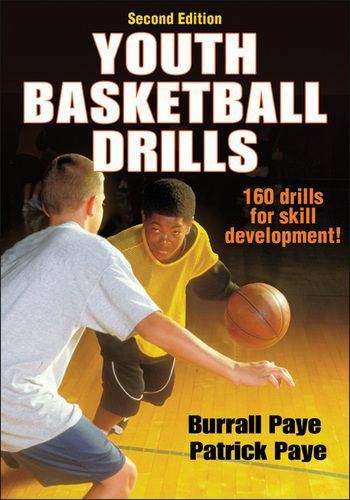
You may also want to add this article to
your "Favorites" or "Bookmark" it, because there may not be enough time to read all of the links in one sitting.
Level 1 (7 to 10 Year Olds)
Here's what to teach, ordered by priority:
- Lay ups - You should practice lots of lay ups with both hands. Your goal should be to get all players to make lay ups with their left and right hands equally well!! Teach them to jump off the proper foot. They should jump off the left leg when shooting a right hand lay up. They should shoot off their right leg when shooting a left hand lay up. It will be difficult but work on it. You'll probably need to start really close to the basket, with no dribble, and take just one step to practice the footwork. Once you add the dribble, they should dribble with their left hand when shooting left hand lay ups. And vice versa.
- Footwork - Teach them triple threat positioning, pivoting on their left and right foot without traveling, jump stops, and to square to the basket as soon as they catch the ball in a triple threat position.
 You should spend a lot of time on footwork!
You should spend a lot of time on footwork! - Shooting form - For this age group, we highly recommend using smaller balls and lower baskets. If that is not possible, allow the players to dip their elbows which will give them more strength. To learn more on shooting, we also have the Breakthrough Basketball Shooting Guide.
- Ball handling - You should teach your players to dribble with left and right hands equally. Basic dribble moves such as the speed dribble, crossover, protect-the-ball dribble, and back-up dribble.
Resource: Progressive Youth Ball Handling & Footwork Workouts App - Players can do the workouts from anywhere. The coaching dashboard also allows you to monitor multiple players or your whole team.
- Athletic & movement skills - Teach them how to run, jump and land, skip, stop, move laterally, squat, lunge and any other basic movements. If you don't know how to teach these movements, ask a professional or PE teacher to show you how.
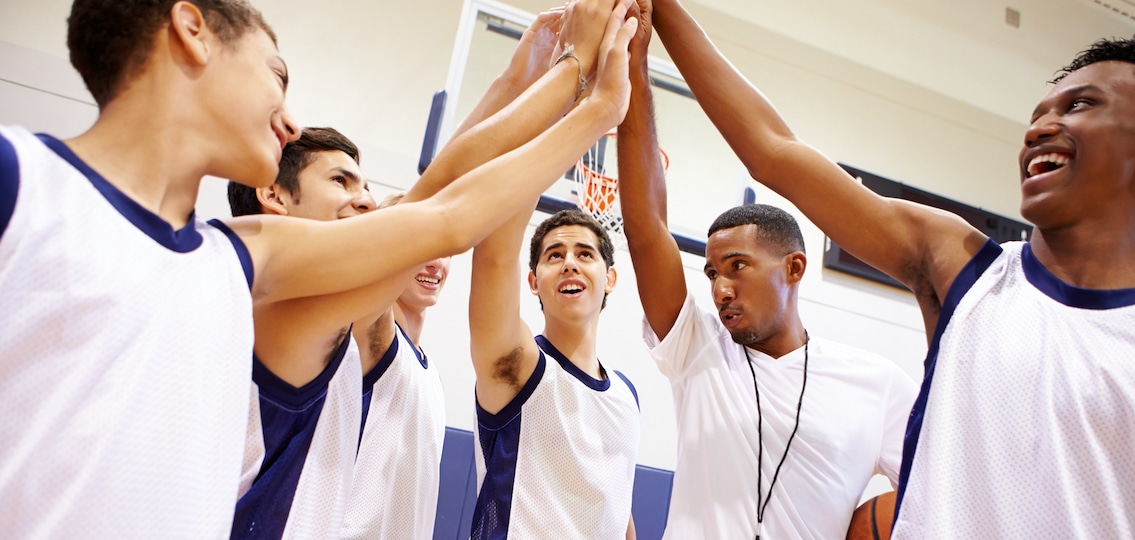 99% of the time they would be more than willing to help, and they may even come and show the kids themselves.
99% of the time they would be more than willing to help, and they may even come and show the kids themselves.Should We Teach Basketball Skills To Players Under the Age of 10? - Useful information for all levels of coaches, not just coaches who work with players under the age of 10.
- Basic passes - Teach and practice the basic chest, bounce, and overhead passes.
- Play plenty of 2 on 2 and 3 on 3 games to teach concepts (no dribble keep away). It gets the players more experience and allows them enough space to operate and use the new skills they have learned. Make sure to use plenty of age-appropriate drills & games.
For more on this, read Could 3 on 3 Basketball Be the Best for Youth Players?
- Offense - Do NOT use any structured or patterned offenses. First, get them comfortable on the court. They will start to figure things out on their own. Your main concern should be to have them move & not stand still.
If you use a few basic cuts and maybe screens in your shooting drills at the beginning of practice, then your players will already know how to move in a motion offense.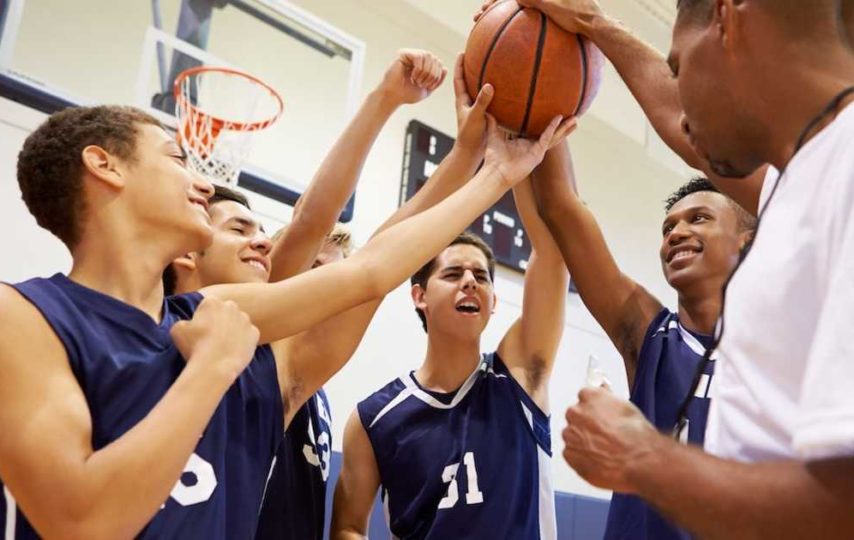 Then you don't have to waste time teaching offense. Just let them play.
Then you don't have to waste time teaching offense. Just let them play.
Once players feel comfortable on the court, show them proper spacing.
As they progress, you can start to introduce them to motion offense situations.
- Basic cuts & how to get open - If time permits, you can introduce the basket cut and straight cut. I would suggest that you just work these cuts into your shooting drills at the beginning of practice. This will save loads of time.
- Defense - Teach the basic stance, defensive slide, and basic off-ball principles. Don't worry about spending as much time on defense. As they get older, you'll gradually spend more time on defense. Focusing on it 5 to 10 minutes per practice would be more than sufficient.
Basic Off Ball Principles:
- Stay between man and the ball
- Always stop the ball if it is in front of you!
For this age group, we are against zone defenses for development purposes.
For anyone coaching this age group, we HIGHLY recommend the DVD The Youth Coaching System (By Jim Huber). You'll gets lots of drills and learn exactly how to teach the most important fundamentals the to kids "right way". We truly believe this DVD should be required viewing for ALL youth coaches.
You'll gets lots of drills and learn exactly how to teach the most important fundamentals the to kids "right way". We truly believe this DVD should be required viewing for ALL youth coaches.
Level 2 (10 to 12 Year Olds)
You should expand onto more advanced skills for everything mentioned above. But remember, if your 10 to 12 year olds are inexperienced, you should start in Level 1. And at the beginning of each season, you should start at level 1 until those skills are perfected. Then you can progress into the more advanced stuff below.
- Lay ups - jumping off one foot and jump-stop lay ups.
- Teach more cuts: back cut, curl cut, etc.
- Continue to focus on shooting form and introduce some movement for shooting drills (shooting off the dribble and off the catch). To learn more on shooting, we also have the Breakthrough Basketball Shooting Guide.
- Ball handling & dribbling - teach more dribble moves such as the inside-out dribble (fake crossover), hesitation move, and between-the-legs.
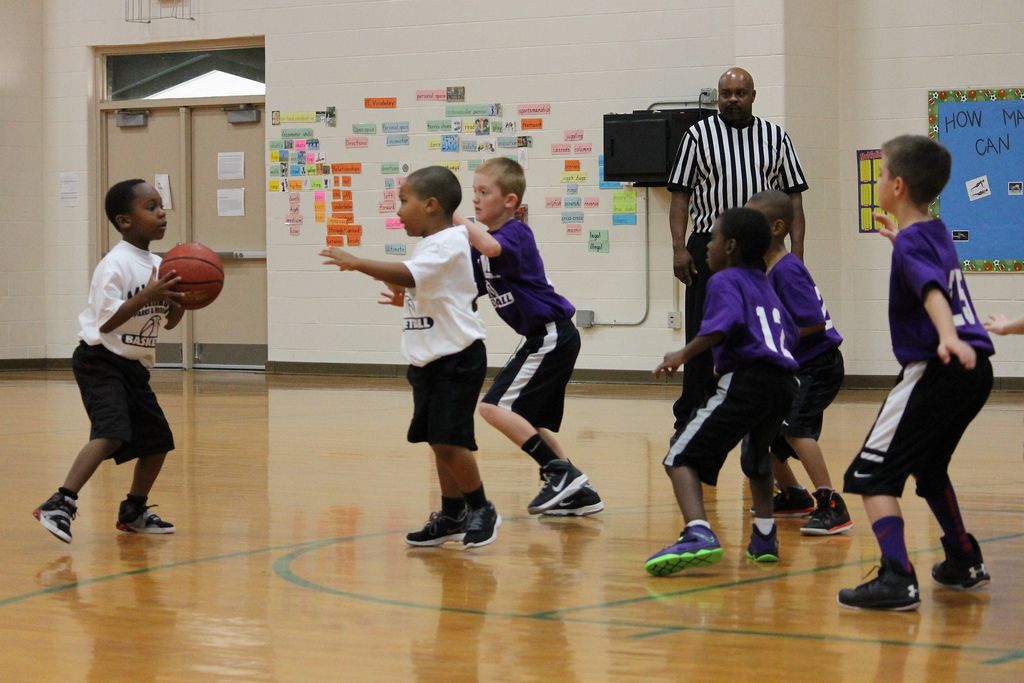
Resource: Progressive Youth Ball Handling & Footwork Workouts App - Players can do the workouts from anywhere. The coaching dashboard also allows you to monitor multiple players or your whole team.
- Passing - continue to teach basic passes and introduce some advanced passes (baseball pass and wrap around pass). Use other drill such as machine gun passing and pass and switch.
- Passing under pressure - you can use pair passing with a defensive player in the middle running back and forth to pressure the passer. You can use this drill to practice breaking pressure: full court press breaker drill.
- Teach basic screens.
- Footwork - introduce jab steps and ball fakes (pass fakes and shot fakes).
- Rebounding - introduce rebounding technique.
- Basic post moves. drop step and jump hook.
- Spacing - introduce more basic spacing concepts.
- Offense - keep playing 2 on 2 and 3 on 3 to teach concepts.
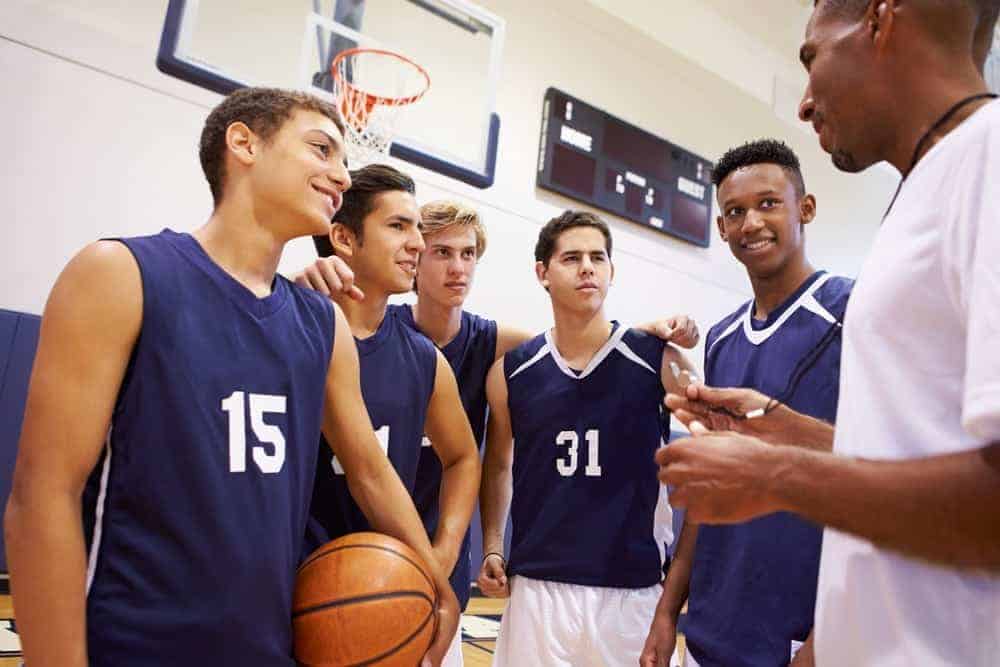 You can also start to introduce more motion offense situations and play some 5 on 5.
You can also start to introduce more motion offense situations and play some 5 on 5.
- Defense - keep emphasizing and spend a little more time on the defensive stance,
defensive slide, and off-ball principles mentioned in Level 1. If you feel that your players are ready, work on more
off-ball defense principles.
In our Man to Man Defense System, we provide step-by-step how to build and teach your defense.
For this age group, we are against zone defenses for development purposes.
For anyone coaching this age group, we HIGHLY recommend the DVD The Youth Coaching System (By Jim Huber). You'll gets lots of drills and learn exactly how to teach the most important fundamentals the to kids "right way". We truly believe this DVD should be required viewing for ALL youth coaches.
Level 3 (12 to 14 Year Olds)
You should expand onto more advanced skills for everything mentioned above.
- Lay ups - practice contested lay ups. Also, you could start to teach players, same-leg same-shooting hand lay ups. I know that is against conventional wisdom, but think about it for a second.Your player just blew by a defender or is on a fast break. Do you want them stutter-stepping to give the defense time to recover and contest the shot? So if that means jumping on your right-leg and shooting right-handed on the same side, so be it.
- Continue to teach basic cuts and add more cuts.
- Continue to emphasize shooting form (move to big baskets and bigger balls).
Practice shooting on the move off of the pass and the dribble. To learn more on shooting, we also have the Breakthrough Basketball Shooting Guide.
- Ball Handling & Dribbling - teach more dribble moves such as the spin move, behind-the-back. Incorporate some double-moves (crossover followed with a behind-the-back).
Resource: Progressive Youth Ball Handling & Footwork Workouts App - Players can do the workouts from anywhere. The coaching dashboard also allows you to monitor multiple players or your whole team.
The coaching dashboard also allows you to monitor multiple players or your whole team.
- Passing - introduce some other advanced passes (dribble pass, behind-the-back pass, pick and roll pass).
- Passing Under Pressure - You use Pair Passing with a defensive player in the middle running back and forth to pressure the passer. You can use this drill to practice breaking pressure: Full Court Press Breaker Drill.
- Teach Basic Screens.
- Footwork - continue to work on jab steps, pivots, and ball fakes (pass fakes and shot fakes).
- Rebounding - put more emphasis on rebounding technique and spend more time on rebounding drills.
- Post moves - keep practicing post moves mentioned above while introducing a few more when the players are ready drop step
counter and up-and-under move.
- Spacing - advance to higher levels of spacing drills.
- Offense - introduce more motion offense situations.
 You should start to notice that your players are becoming much better at reading the defense.
You should start to notice that your players are becoming much better at reading the defense.
- Defense - Emphasize basics from previous levels and move on to rotations and situations.
In our Man to
Man Defense System, we go into great detail about rotations and situations.
For this age group, we are against zone defenses for development purposes.
Sample Practice Plan for 7 to 10 year olds.
Sample Practice Plan for 11 to 14 year olds.
Do you have any questions or suggestions? Let us know by leaving your comments...
How can I become a basketball coach? Kiiki
Ninety percent of basketball fans, in addition to playing basketball, would like to become a basketball coach. This is because today's coaches were once yesterday's players.
Therefore, this How to Become a Basketball Coach article explains in detail the requirements to become a basketball coach, the complete guide and how much you can earn as a basketball coach.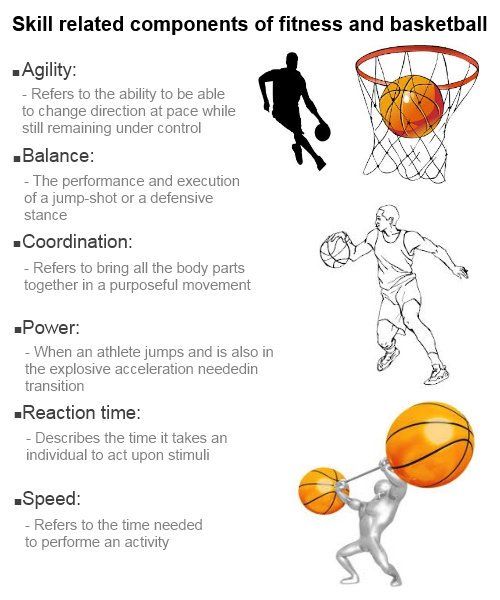
Becoming a basketball coach will become less strict if you have the right information.
Basketball has about 825 followers and over one hundred thousand teams. In fact, the history of basketball dates back to 1891, when James Naismith, a Canadian physical education instructor, introduced it as a less injury-prone sport than football.
Becoming a basketball coach requires certain qualifications, experience, physical strength, and a performance-oriented mindset. In fact, legendary coaches are known for their resilient spirit and drive to achieve their goals.
The table of contents below contains a number of frequently asked questions about becoming a basketball coach, which are properly answered in this article.
Is basketball a game or a sport? At its core, sport is physical activity performed according to an agreed set of rules for the purpose of recreation. It can be competition or self-gratification or a combination of both.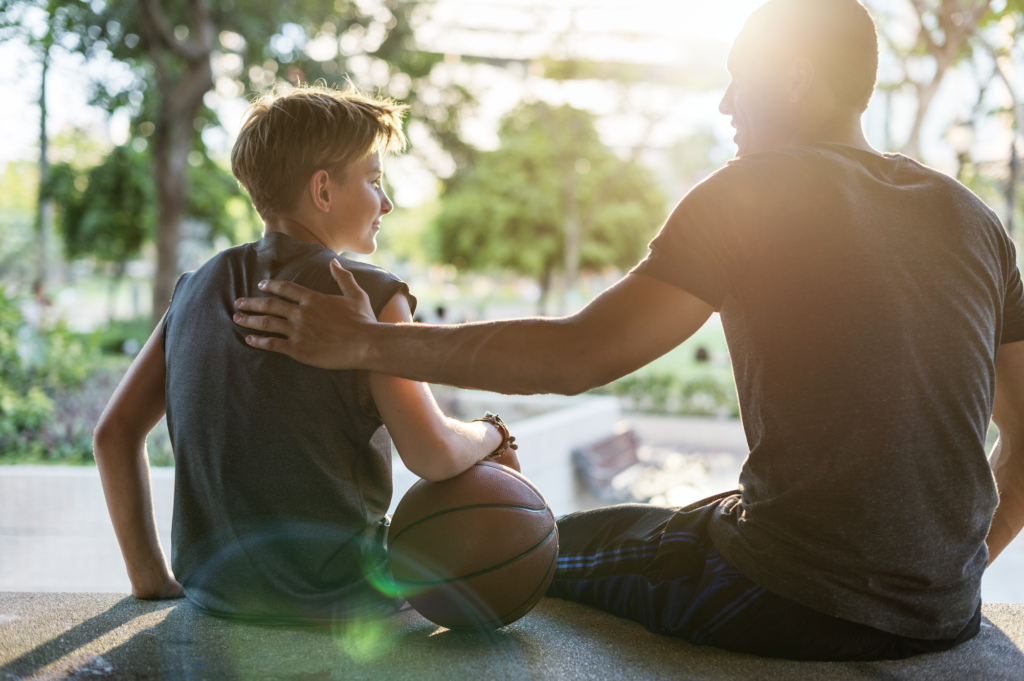
Whereas, a game is a recreational activity involving one or more players determined by a goal that the players are trying to achieve within some set of rules.
Thus, the difference in goals distinguishes sport from play in combination with the concept of individual skill or mastery. While games are primarily played for entertainment or enjoyment, sports can be competitive or for personal enjoyment.
Basketball is a sport because it is a physical activity played according to set rules, and a game because it is fun.
What is basketball? Basketball is a team sport in which two teams, usually consisting of five players each, play against each other on a rectangular court. Its origins date back to 1891, when James Naismith invented the game as a less-injury sport.
Two teams of five players each. So, we have ten players on the court at the same time, and a maximum of seven on the bench.
Usually in a game, one team tries to prevent the other team's players from scoring. However, each normal score is two points, and if a player shoots the ball into the hoop from behind a large arc-shaped line on the court called the "three-point line", three points are scored.
However, each normal score is two points, and if a player shoots the ball into the hoop from behind a large arc-shaped line on the court called the "three-point line", three points are scored.
In addition, there are several officials in this game who do not belong to any of the teams, but are ready to help. These are the judge, referee, timekeeper, scorer and shot clock operator.
SEE ALSO: Best Football Prep Schools in the USA | Ratings
Who is a professional basketball coach? Every sport or game needs players and someone to guide and teach the skills for how these players should excel on the field. These teachers or directors are called coaches.
In this way, a professional basketball coach teaches professional basketball players all the skills they need to succeed on the court.
In addition, a professional basketball coach conducts training, selection of players and conducts games during games.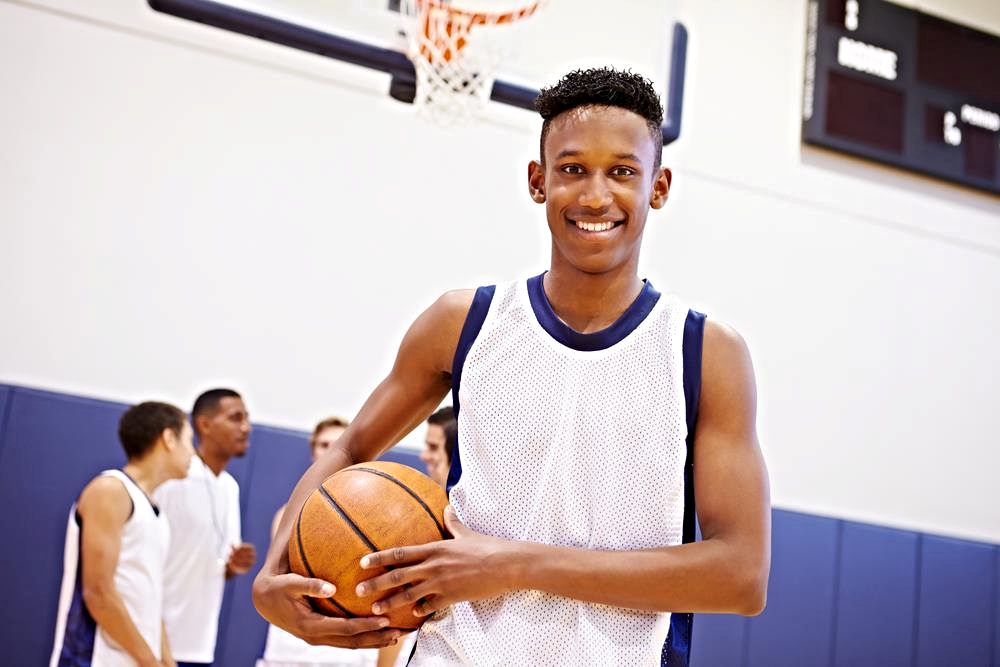 They often analyze the strengths and weaknesses of their team as well as their opponents.
They often analyze the strengths and weaknesses of their team as well as their opponents.
In addition, professional basketball coaches also evaluate and track individual performance and create games that capitalize on the strengths of their players. They can work hand in hand with assistant coaches to bring out the best in their players.
Finally, most professional basketball coaches started out and became record-breaking high school basketball coaches or even coached college and high school basketball. Some of the legendary basketball coaches include
Jim Calhoun
Winning over 600 games in four final four games, he won national championship titles. In addition, Jim Calhoun turned the Connecticut Huskies into one of the elite college basketball programs. As a result, his legendary and professional basketball coach won over 600 games. In 2005, he was inducted into the Naismith Memorial Basketball Hall of Fame.
Subsequently, six years later at 68, he became the oldest coach in Division 1 history with a national title.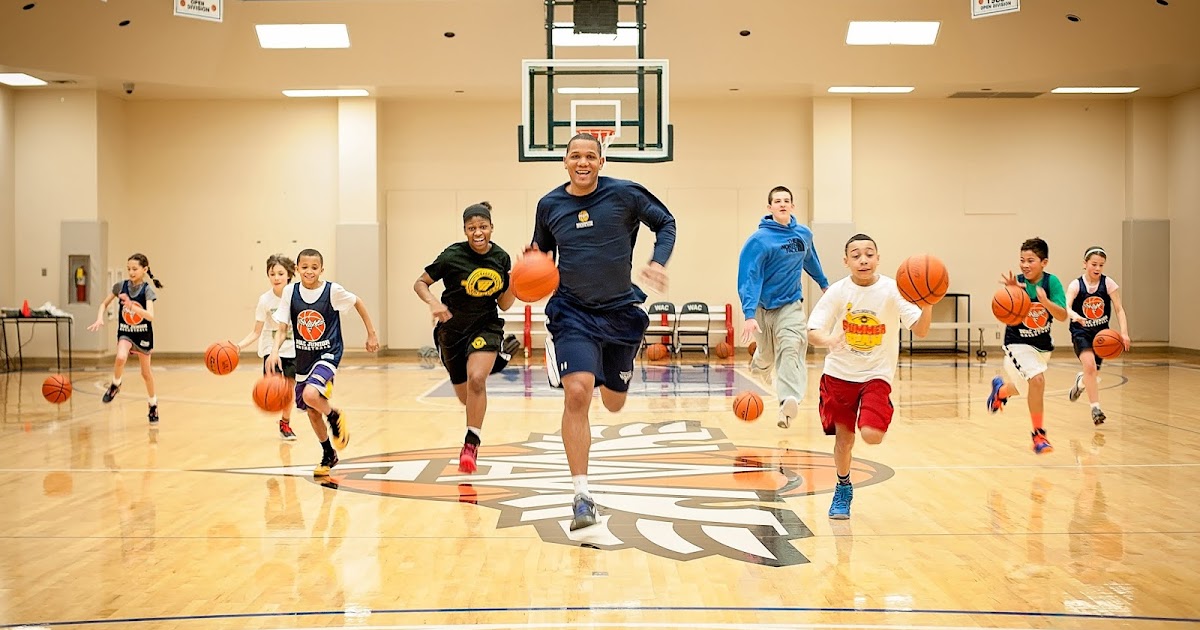
Dean Smith
Similarly, Smith is one of the greatest innovators in college basketball. Apparently, he is the developer of the Four Corners crime. In addition, Smith turned the Tar heels into one of the most successful basketball programs in the country after taking over in 1961.
He compiled 870 wins and 11 final fours, as well as two national championships. In addition, almost 97 percent of its athletes received a degree.
Bobby Knight
This Hall of Famer coach is known for his edgy style, nicknamed The General; Bobby is the second-best winning coach in Division I men's basketball.
In fact, this legendary professional coach has 902 career victories. In addition, he led the American team to a gold medal at the 1979 Pan America Games and 1984 Olympics.
In addition, the Indiana Hoosiers turned into a perennial powerhouse, reaching five of Bobby Knight's Final Fours. In addition, he also won three national championships.
SEE ALSO: 15 Largest College Football Stadiums in the US | 2021
What is a high school basketball coach? A high school basketball coach is a coach who works with basketball teams at the high school level.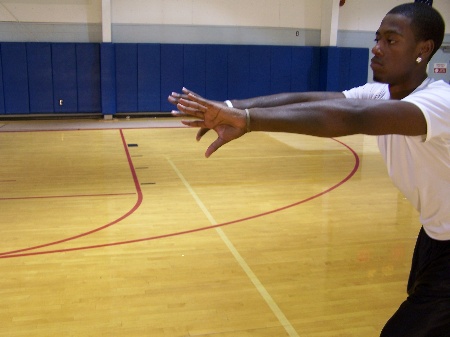 Thus, the high school basketball coach will perform all the activities and duties of a coach for the high school team.
Thus, the high school basketball coach will perform all the activities and duties of a coach for the high school team.
Basketball is one of the games for recreation, entertainment and sports among schoolchildren. Basically, former students often become basketball coaches.
In addition, these professionals are in high demand today, so you can try to become a school basketball coach for girls or boys. However, you may need the following to start your career as a high school basketball head coach.
- Continue
- Cover letter
- Portfolio
- Interview
In essence, you should include the following information in your portfolio
- Why are you interested in the position of
- What is your philosophy of coaching
- of the great coach
- Your communication style
- Your strengths
- Development of player
- your goals for the program
- Academics
NBA?
NBA stands for National Basketball Association.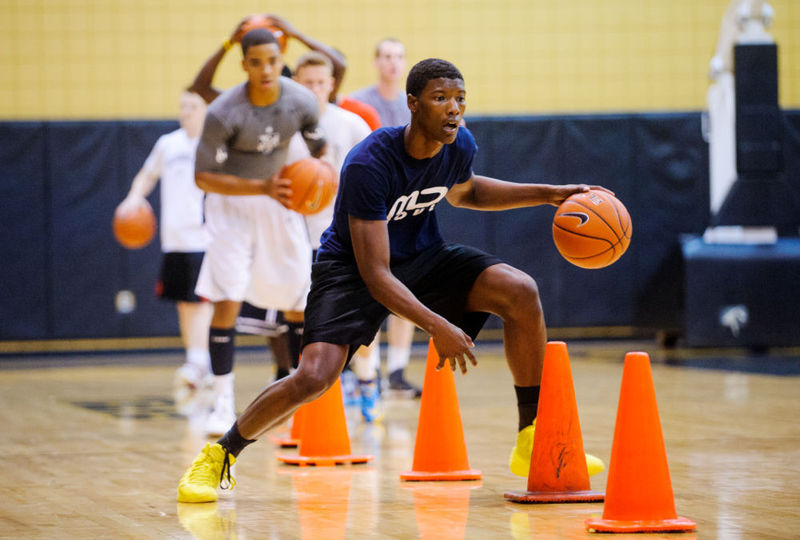 First, finding such a position is not easy. Becoming an NBA coach is exciting but hard, landing hard. However, it is still possible0003
First, finding such a position is not easy. Becoming an NBA coach is exciting but hard, landing hard. However, it is still possible0003
Second, basketball coaches hired by this association become NBA coaches. Mostly, these coaches had to work as college basketball coaches, high school basketball coaches, and more importantly, professional basketball coaches.
Third, according to a business insider, all NBA coaches agree that two things are important. One is networking and the other boasts a strong resume. In addition, different path to the NBA following stories Coaches and players will also help you move up the career ladder.
What degree do I need to become a basketball coach? There are no minimum education requirements to become a professional basketball coach. However, many coaches begin their careers at the high school or collegiate level, and these positions may require a bachelor's degree.
You can also take a bachelor's degree program that includes physical education and exercise.
You should expect and excel in coursework that covers fitness and wellness throughout life, anatomy and physiology, and motor development. Subsequently, you can also learn how to earn online certifications in sports history, rules and strategies.
In addition, you need all the experience you can get to advance in this career. Basically, you may need an assistant basketball coach in college and high school.
In addition, you can try to gain experience as a head coach in smaller schools and programs before moving on to larger opportunities and teams.
How can I become a basketball coach? First, most high school basketball players go to coach after high school. To be a college or high school basketball coach, you must have a keen interest in this career. Also, you can check out other 9 high paying careers0016 too.
Step 1: Get a Bachelor's Degree Basically, you need a bachelor's degree to become a basketball coach. So, you're in an exercise and physical education program, or better yet, you're taking a coaching course.
So, you're in an exercise and physical education program, or better yet, you're taking a coaching course.
In fact, the coach education program helps you learn how to work with athletes and develop game plans, as well as plan and implement fitness and skill development programs.
In addition, it is important that you get a personal experience of playing basketball. This gives you a more comprehensive knowledge of the sport and allows them to communicate better with their players.
Also you can learn teaching skills as many schools hire trainers who are already working as public teachers. Some of the programs you can offer
This program features coursework in sports psychology, human movement, and coaching principles. It is available as undergraduate, graduate and certificate programs. Basically, a bachelor's certificate in Athletic Coaching prepares you to be an effective leader and health advocate for athletes, no matter the sport. Some of the courses you can offer include:
- CPR and First Aid
- Human Nutrition and Trauma Treatment
- Player Motivation
- Sports Psychology
- Coaching Pedagogy
- Sports Program Administration
. These programs must meet four goals: reliability, professionalism, quality of service and confidence.
These programs must meet four goals: reliability, professionalism, quality of service and confidence.
In essence, any of these degree programs will introduce you to basic principles such as:
- Prioritize the well-being of the individual
- Provide services only in areas of competence
- Issue public statements truthfully and objectively
- Law with a high level of personal conduct
- Remain proficient in professional practice and performance of professional duties
- Maintain professional integrity
In addition, to obtain an online certificate in sports training from Columbia University : This will cost you an average of $480/semester credit hour.
Step 2: Gain coaching experience In fact, before you can get the opportunity to work as an assistant coach, you need to have coaching experience. So, you need to start working with basketball teams at different levels.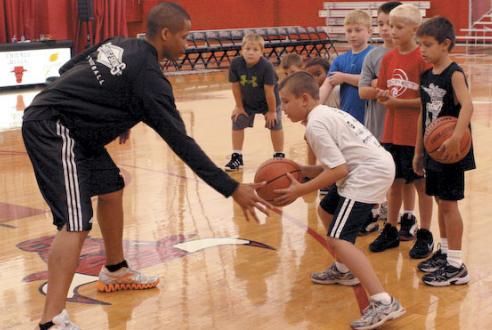 It is advisable to volunteer in high school, high school, or even on a college team as a team manager.
It is advisable to volunteer in high school, high school, or even on a college team as a team manager.
Actually, learn to watch as many game tapes as possible. This will help you understand, break down the actions and strategies of teams and players.
In addition, both volunteer and game recordings will teach you how to reorganize various attacks and defenses. This is essential to becoming a basketball coach in both high school and college.
Step 3rd: Working as an Assistant Basketball Coach Basically, to become a basketball coach, you must start your career as an assistant basketball coach. This is easier to get as support jobs are on the rise. However, this can lead to increased liability.
At this stage, you should work more closely with the players individually before and after practice to help them improve their basketball skills.
4th step: get certified The degree is excellent accompanied by experience as a basketball coach, but certifications are very important. Basically, certification programs deal with a selected part of a broad area.
Basically, certification programs deal with a selected part of a broad area.
So while a degree in physical education is great, certifications in CPR, first aid, and coaching may be required for coaches looking to work in public junior or non-teaching staff at the school.
Step 5: Grow your career path. You are now a certified basketball coach and can serve as a head coach at public high schools, high schools, and colleges. Since most high school coaches work part-time and do not receive the salary or benefits of a full-time coach, you should consider moving to college or professional basketball.
However, this may require many years of experience and the successful work of your team,
In fact, you have to keep winning and chasing big opportunities until you join the Naismith Basketball Coaches Hall of Fame.
How much does a basketball coach earn? Basketball coaches earn an average of $100,000 when they work with small school teams.
However, coaches at any of the highest paying schools in the NCAA earn about $1 million or more a year.
How to become a basketball coach Basketball coach salaries vary depending on your current employer, team level, qualifications and experience. . For example, of the 65 teams that competed in the 2014 Men's National Collegiate Athletics Association (NCAA) tournament.
In general, the coach with the lowest earnings earned about $171,000.
Also, in the professional league, according to CBSSPorts.com, the average salary is about $3.05 million.
A high school basketball coach is a coach who works with basketball teams at the high school level. Thus, the high school basketball coach will perform all the activities and duties of a coach for the high school team.
To be a college basketball coach, the level you want to coach will determine the degree requirements.
Basically, at Div:1 level, you just need a degree.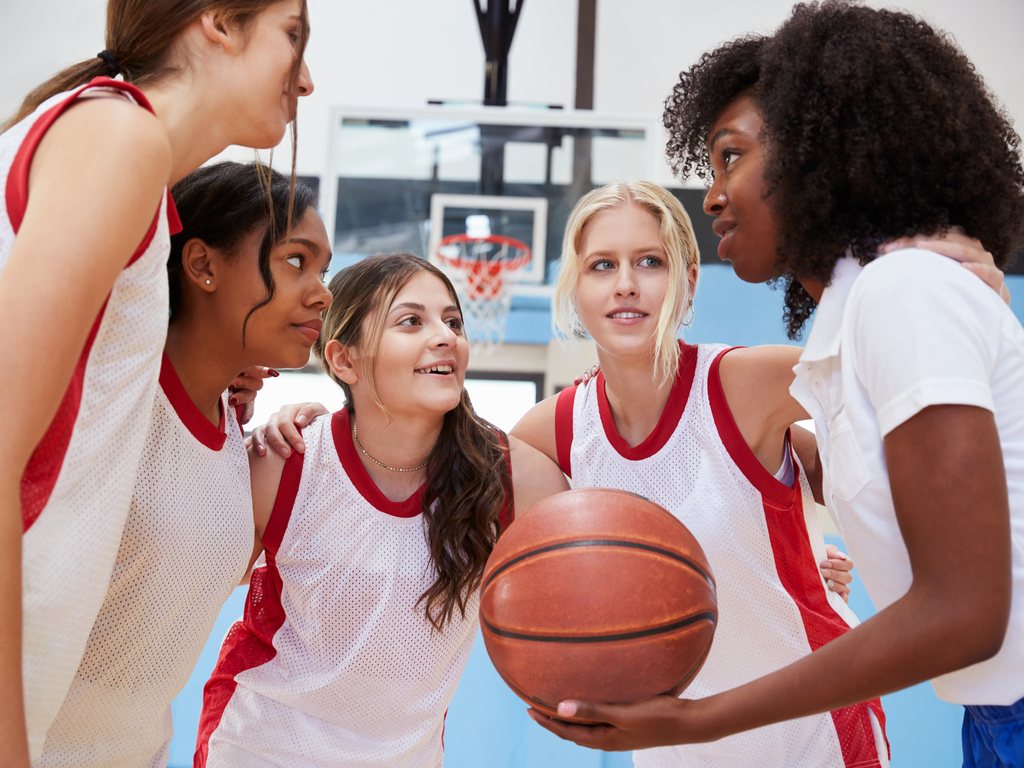 However, as you progress to the lower level, many schools are looking for a master's degree applicant.
However, as you progress to the lower level, many schools are looking for a master's degree applicant.
In addition to your qualifications, it is important to note that coaching is based on contacts, not knowledge. So you need a strong resume and a network connection too.
Conclusion Basketball is an interesting game and being a basketball coach is also an interesting career path. This World Scholarship Forum article explains the main difference between a game and a sport,
Although there is a difference, this post explains why basketball is both a sport and a game.
In addition, it sheds light on who basketball coaches are, their various levels, and a detailed guide on how to become one.
Basically, you may first need to show interest in a career to become a basketball coach. In addition, you will need a bachelor's degree and a certificate with extensive experience to succeed in this coaching career.
This post also shows tips on how to become a high school and college basketball coach. The FAQ answers how much you can earn coaching a basketball team.
The FAQ answers how much you can earn coaching a basketball team.
Finally, it lists communication, leadership ability, attention to detail, and a thorough knowledge of basketball and its rules as key skills for a basketball coach at both the high school and college levels.
Get all the requirements and start your career path to greatness. See you in the Hall of Fame.
Recommendations - Learn.org; Professional career as a basketball coach .
- Simple Wikipedia: Basketball teams
- Duckster: Basketball
- Basketball breakthrough: Tips on how to make the great coach
- basketball liner:
-
-
- ?
- What can you do with a degree in public relations? | Online, Job, Salary
- Automotive Hall of Fame Scholarship
- What is a Bachelor's Degree: Meaning, Cost, and Types
- Top 21 Education and Salary Careers
How to Become a Basketball Coach • BUOM
By Indeed Editorial Team
2 February 2021 All professional athletes rise through the ranks under the guidance of a coach. Regardless of the sport, a coach has a unique ability to improve players' skills and help them become more confident in their game. A basketball coach can help a player through the season or prepare him for the professional level.
Regardless of the sport, a coach has a unique ability to improve players' skills and help them become more confident in their game. A basketball coach can help a player through the season or prepare him for the professional level.
In this article, we will explain what a basketball coach is and what he does, talk about the average salary of basketball coaches in the country, explain how to become a basketball coach, and answer some frequently asked questions about the job.
What is a basketball coach?
A basketball coach is a person who guides a player or group of players during a game of basketball. They teach students how to play the game, strategize with them during competitions, help build skills and inspire. A basketball coach can work with players of different levels, from very young to professional athletes. Basketball coaches need to be excellent communicators, be patient, have strong leadership skills, and know the game of basketball well.
Most basketball coaches who work in the school system also teach a school subject, but it is possible to work as a basketball coach part-time in elementary or high school, or full-time without additional responsibilities at the college level and beyond.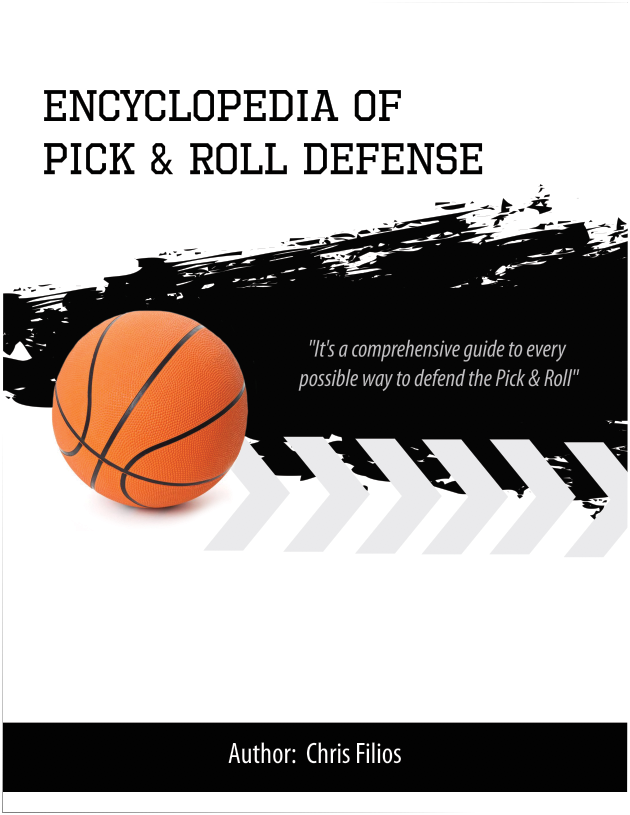
What does a professional basketball coach do?
Being a professional basketball coach is a lot and has a lot of responsibilities. A basketball coach at any level is responsible for:
-
Teaching your team how to play basketball, including basic skills, rules and various strategies.
-
Make sure all players work together as a team and that everyone values the team more than their own individual accomplishments.
-
Organization of training sessions so that players can improve their skills
-
Training of players who may need individual assistance outside of a team environment
-
Create strategies to use on the court based on the skill level of the players and the team they are playing against.
-
Being a motivator and leader for the team and all players
-
Identifying each player's strengths and weaknesses and addressing them accordingly
-
Making quick decisions during the game for things like changing players
0 Prevention, assessment and treatment of injuries
-
Promote teamwork and good sportsmanship and share the importance of friendly competition.
Average basketball coach salary
The average national basketball coach salary in the US is $48,590 per year. This salary may vary depending on your years of experience and the city and state in which you work as a basketball coach.
For example, in Atlanta, Georgia, the average salary of basketball coaches is $61,480 per year, and in New York, New York, basketball coaches are reported to earn an average of $44,843 per year.
Some common advantages that basketball coaches can use are:
-
Flexible schedule
-
Medical insurance
-
Sports
-
Paul housing
00 403 (B) (B) (B) -
Professional development assistance
-
Disability insurance
-
Life insurance
-
Access to the recreation program
-
Dental insurance 9,0003
-
Savings account of health
-
AD & D Insurance
How to become a basketball coach of the basketball, 1.

Get a high school diploma
Depending on the level at which you intend to teach, you may only need a high school diploma or equivalent to work as a basketball coach. If you do not have a high school diploma, a GED will be sufficient in most cases.
2. Get a bachelor's degree
Most employers require you to have a bachelor's degree in order to be a basketball coach. A degree in education is preferred, but you may want to consider additional physical education or athletic training if available. You can also specialize in areas such as physical education, exercise or sports medicine.
While in college, try to play for the high school team to gain experience and develop your skills. This will help you save the position later. You may also aspire to become a team manager, which will help you develop your leadership qualities.
3. Decide what level you want to coach
Basketball coaches can work directly with many age groups, from elementary school to professional level. One of the first steps to becoming a basketball coach is knowing what your ideal career path is. You may find that your love of the game means that the level of your athletes doesn't matter, or you may prefer to work with players who are a bit more experienced and willing to try their hand at the professional level.
One of the first steps to becoming a basketball coach is knowing what your ideal career path is. You may find that your love of the game means that the level of your athletes doesn't matter, or you may prefer to work with players who are a bit more experienced and willing to try their hand at the professional level.
If you're talking about a certain level of skill, it might help you choose a career or open up some opportunities for extra learning outside of your main job, like in a sports league.
4. Play Basketball
Many basketball coaches love the game and become basketball coaches because they grew up playing the sport. While many may have formed teams with neighborhood kids in their youth, many others played at school. While not required to be a successful basketball coach, you must be able to demonstrate knowledge of the game and demonstrate certain skills that you can teach others, and probably the best way to do this is to experience the game in person.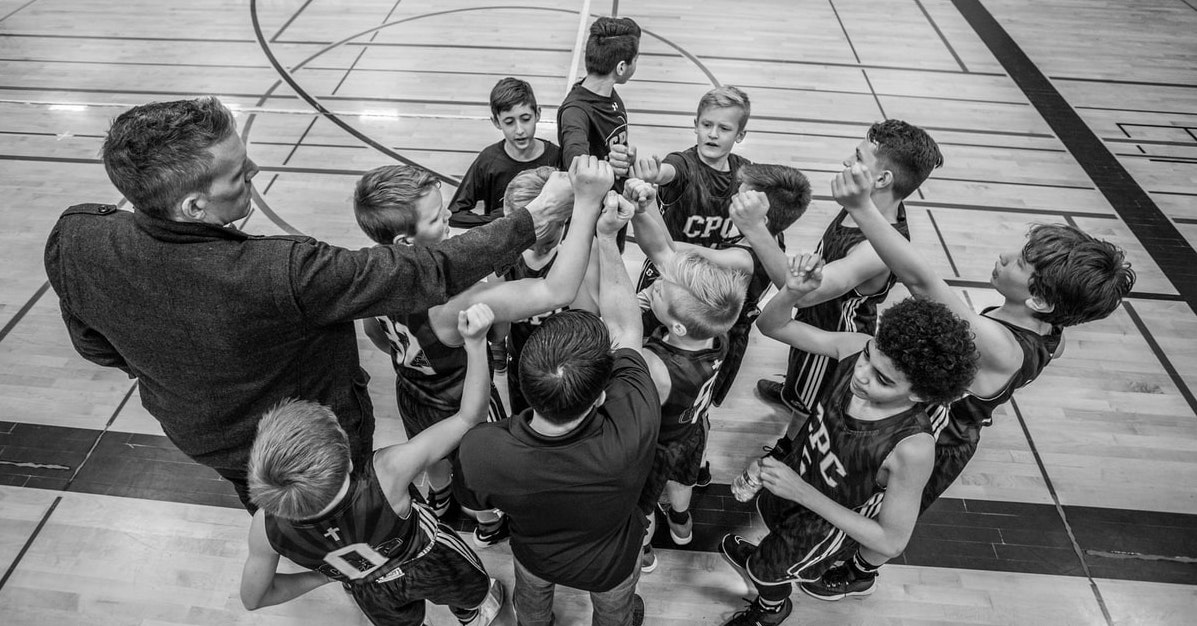
5. Become a Volunteer Coach
When you get your degree, look into volunteering at local schools or sports leagues as a second basketball coach. This will give you experience and help you connect with those who work at the school. These same contacts can connect you to post-graduation employment opportunities either at the same location where you volunteered or at a nearby school.
6. Take education-related courses
Your employer may still hire you without a bachelor's degree in education, but without it, you may have to take education-related courses if you want to work in the school system. These courses will prepare you to work in an educational environment, including how to create and manage a curriculum, and the different ways your student base can learn.
7. Get certified in your state
Each state has specific rules it must follow before certifying professionals as teachers and coaches. Contact your state Board of Education to determine what you need to do to get approved to teach and coach.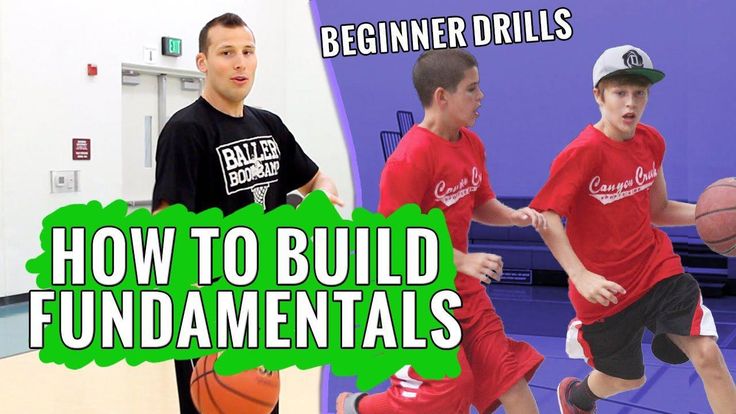 You may have to work a certain number of hours at school under the guidance of a mentor and demonstrate that you have certain skills and knowledge.
You may have to work a certain number of hours at school under the guidance of a mentor and demonstrate that you have certain skills and knowledge.
In addition to teaching certification, you may be required to be certified in CPR and first aid to help students with medical emergencies.
8. Working With Experienced Coaches
You may want to ask experienced coaches to guide you as you begin your basketball coaching career. They can provide valuable insight into the training of players in the sport. Get guidance and ask them questions so you can get different perspectives on the job and how they were able to succeed.
6. Apply for a job
Search online for basketball coach jobs. You can search the Internet for job boards or even visit local gyms or recreation centers to see if they need a coach. Youth or senior basketball leagues often need coaches during the season, so you can look for jobs in the leagues in your area.
Frequently Asked Questions and Answers on Becoming a Basketball Coach
Here are some frequently asked questions about becoming a Basketball Coach:
Are basketball coaches required to wear suits?
Whether or not you need to wear a suit to work depends on your employer.